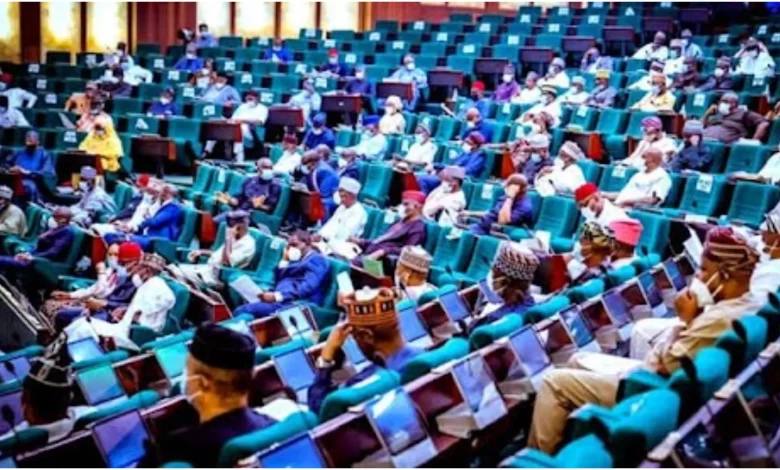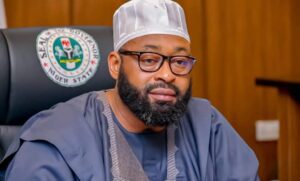
Reps to probe $2bn renewable energy investment
The House of Representatives Committee on Renewable Energy has invited stakeholders to an investigative hearing on the $2bn renewable energy grants and investments in Nigeria.
According to the Committee, the investment has not had a proportional impact on the nation’s energy security challenges.
In July 2024, President Bola Tinubu disclosed at the Africa Natural Resource and Energy Investment Summit in Nigeria that the nation had attracted over $2bn of investment in the sector in the past decade.
“Over the past decade, Nigeria has attracted over $2bn in investment in the renewable energy sector, making it a fast-growing part of the economy. Our commitment is to continue on this path and attract more private sector involvement in the renewable energy space, including manufacturing locally produced solar panels and batteries.
“By encouraging local production of equipment, we can reduce implementation costs, thereby lowering the threshold for electrification,” the President was quoted as saying.
Scheduled for Tuesday and Wednesday, 5 and 6 November 2024, the investigative hearing follows the mandate given to the Committee on 6 June 2024 to investigate Ministries, Departments, and Agencies involved in investments, procurement, and receipt of grants for renewable energy sector development.
In a statement issued on Sunday by the Committee Chairman, Victor Ogene, in Abuja, the probe will cover the period from 2015 to 2024.
The lawmaker said the House was shocked that “Despite the government attracting over $2bn in renewable energy investments in the past decade, as reported by the Rural Electrification Agency in 2023, there has been no noticeable improvement in the sector.
“The House of Representatives was alarmed that the dysfunctional electricity generation and supply system persists, contrary to the objectives behind government investments and grants aimed at developing the renewable energy sector. Hence, the resolution to probe these investments to determine the integrity of the procurement and execution processes.”
He noted that the probe is not a witch-hunt but an exercise to discourage shady dealings and promote transparency and objectivity in managing government or public resources.
The House’s resolutions followed the adoption of a motion titled “Need to Investigate Investments in the Renewable Energy Sector and Foreign Grants Received from 2015 Till Date,” sponsored by the lawmaker representing Oshodi-Isolo II Federal Constituency, Lagos State, Mr Okey-Joe Onuakalusi.
Leading the debate, the lawmaker said the parliament was aware that poor electricity generation, transmission, and distribution pose a significant threat to the nation’s industrial and technological development goals.
According to the lawmakers, successive governments since 2015 have made substantial investments and attracted multimillion-dollar foreign grants for Nigeria’s renewable energy subsector to create a viable and sustainable alternative energy supply.
They noted that in December 2023, the World Bank approved a $750m facility to boost renewable energy in Nigeria, aiming to provide over 17.5 million Nigerians with improved access to electricity through distributed renewable energy solutions.
They also noted that in 2020, the Federal Government launched a $200m renewable energy project, the ‘Nigeria Electrification Project,’ targeted at providing off-grid energy to over 500,000 people across 105,000 households in rural communities, funded by the African Development Bank.
Agencies invited to the public hearing include, but are not limited to, the Rural Electrification Agency, Nigerian National Petroleum Company Limited, Nigerian Content Development and Monitoring Board, Nigerian Sovereign Investment Authority, National Agency for Science and Engineering Infrastructure, and the Ministry of Petroleum Resources.
Also invited are the Country Representative of the European Union, Union Bank Plc (Compliance Department), Ministry of Science, Technology and Innovation, Federal Ministry of Power, Energy Commission of Nigeria, and Federal Ministry of Finance.
Other invited entities include the Niger Delta Power Holding Company, Federal Ministry of Marine and Blue Economy, Federal Ministry of Environment and Ecological Management, Federal Ministry of Petroleum (Gas Resources), Niger Delta Development Commission, United States Agency for International Development, Federal Ministry of Budget and Economic Planning, Federal Ministry of Agriculture and Food Security, Accountant General of the Federation, and Renewable Energy and Energy Efficiency Associations, among others.




